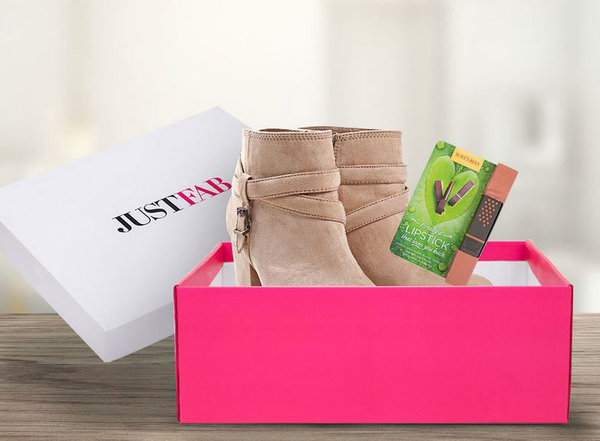By Diane Mastrull
The Philadelphia Inquirer
WWR Article Summary (tl;dr) “BrandShare”, based in Berwyn, Pa., is believed to be the world’s first and largest media and e-commerce sampling company, providing 74 million “value-add product inserts” a month.
The Philadelphia Inquirer
Mott’s Fruity Rolls. Tide detergent pods. Art of the Shave razors.
These are just some of the surprises e-commerce shoppers have found when their packages arrived – tucked, for example, inside the children’s pajamas from Zulily, the sheets from Bed Bath & Beyond or the men’s shirts from Brooks Brothers.
The retail world no longer guarantees face-to-face opportunities to pitch new products to consumers, a taste test in a supermarket aisle, an impulse-purchase display at the checkout counter, because shoppers no longer have to leave home to buy. So the in-package free sample has become a key marketing and customer-loyalty-building tool in online commerce because of its seemingly undeniable popularity.
“Who doesn’t like free? Especially when something has real value,” said Craig Kapilow, senior director of brand partnerships and integrated marketing at Rue La La, an invitation-only online shop offering short-lived deals on brand-name merchandise.
The answer: No one doesn’t like free, apparently, and that’s meant enormous success for a Philadelphia-area family-run business founded before e-commerce was a thing.
BrandShare, based in Berwyn, Pa., is believed to be the world’s first and largest media and e-commerce sampling company, providing 74 million “value-add product inserts” a month and expected to reach between $40 million and $50 million in revenue this year.
Triple-digit growth since 2013 earned the company, created in 1984 by Dick Guyer and one of his nine children, Doug, a spot on the Inc. 5000 this year.
E-commerce is projected to reach $700 billion in the United States by year-end, and brand spending on product sampling is expected to total $34.12 billion this year, according to the Path to Purchase Institute in Chicago. The Guyer family’s decision to redirect its focus to the online shopping world seems genius.
“If we wouldn’t have made this change, we wouldn’t be where we are today,” said Doug Guyer, president of the company of 54 employees, split mostly between Berwyn and New York City.
BrandShare also has offices in Bentonville, Ark., and San Francisco, primarily to serve Wal-Mart, one of its biggest retail clients, and in Chicago, home to a major brand whose products it samples, Wrigley.
Founded initially as International Direct Response, the company was proposing a new revenue stream, media inserts, such as credit-card offers, for catalog companies Dick Guyer, now retired in Florida, had served as a list broker. (List brokers help companies get their message to the right audiences.) Doug Guyer graduated from Boston College in 1983 with a degree in marketing.
Then came the idea to expand beyond media inserts (paperwork basically) to product samples. Their first job: placing 200,000 Tylenol packets, along with coupons for the pain reliever, in catalog orders from Cabela’s, Eddie Bauer, and Sportsman’s Guide.
Johnson & Johnson was so pleased with the results that in increased the number of samples to 4 million five months later, Doug Guyer said. The company has “been a great partner ever since,” he said.
As retailing changed, so did the Guyers’ business, rebranded this year as BrandShare. By the mid- to late 1990s, that meant media and product sampling in e-commerce orders.
BrandShare pays retailers a fee, the specifics of which Doug Guyer would not disclose, to get samples included in their outgoing packages. It makes money by charging brands a fee to get their products placed, and almost guaranteed notice.
“We’re going to put your product into a FedEx or UPS package that gets opened 100 percent of the time in a very positive environment,” Guyer said.
“It just has to be that perfect synergistic fit,” his sister Kathie Tuoni, chief operating officer, said of the product-retailer matches BrandShare makes.
The biggest opportunities are for fashion retailers, Tuoni said, whose customers are a receptive audience to the beauty and skin-care products available for sampling. Mothers with young children are another prime sampling audience, she said. Hence the Mott’s Fruity Rolls and Legos that have gone in Zulily orders.
Another plus about moms and millennials, Tuoni said, is that they are huge social media users inclined to gush about their free samples on Facebook and Instagram. Advertising gold.
Since Zulily started sampling with BrandShare in 2015, it has increased its volume of samples about 28 percent each year, Doherty said. They have included Teddy Soft Bakes, Back to Nature’s Macaroni and Cheese, Brookside Chocolates, Werther’s Original caramels, and Bic 4 Color Pens.
“It’s added value,” Doherty said.
Currently, BrandShare provides samples in 42 lifestyle categories, said Doug Guyer, who said client retention rate is 93 percent annually.
With all that momentum, there are still worries. A sample arriving broken, or, worse, causing damage to the ordered shirt or pants it accompanies. Or a retailer deciding to bring in-house the work BrandShare does.
“That’s what keeps me up at night,” Doug Guyer said.














































































































































































































































































































































































